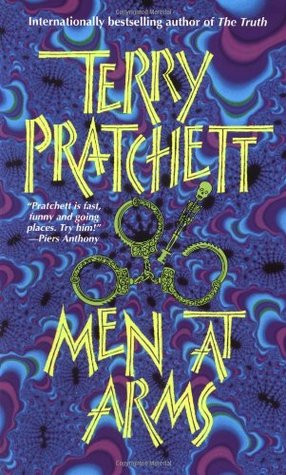I read one book in February.
One.
I can blame it on the Lunar New Year festive or that I have had been spending more time on writing crappy short stories. But I’m not going to do that. The fact that I managed to go through four books in January while holding down a hectic full-time job at an ad agency shows that I can and could make time to read.
So the answer is simple. I didn’t make time for my readings. And I’ve come to realized that the less I read, the more my writing suffered. When I read less, I not only lacked the tools to structure a story but also the creative spark to tell one. Or as Stephen King mentioned in his book On Writing: A Memoir of the Craft:
[Reading]… also offers you a constantly growing knowledge of what has been done and what hasn’t, what is trite and what is fresh, what works and what just lies there dying (or dead) on the page. The more you read, the less apt you are to make a fool of yourself with your pen or word processor.
Wise words.
So, moving on to that one book I read in February.
“Men At Arms” – Terry Pratchett
 I first came across Terry Pratchett’s work when I was 15 or 16 years old. A math teacher had printed and posted outside his classroom a number of witty quotes and sayings that were attributed to famous people who purportedly wrote or said those witticisms. One of these were attributed to Terry Pratchett:
I first came across Terry Pratchett’s work when I was 15 or 16 years old. A math teacher had printed and posted outside his classroom a number of witty quotes and sayings that were attributed to famous people who purportedly wrote or said those witticisms. One of these were attributed to Terry Pratchett:
In the beginning there was nothing. And the Lord said ‘Let There Be Light!’ And still there was nothing, but at least now you could see it.
I remembered laughing and thought that it was pretty funny. I also remembered trying to explain the joke to a couple of friends and completely bombing it. It’s a complete mood-killer when you have to explain a joke.
After reading that Pratchett’s witticism, I read up on him and discovered that he was a well-known fantasy writer who was famous for his Discworld series. My school library had a number of Discworld novels. So I very briefly glanced through some of them and then decided that it was not for me.
I still don’t know why I thought that.
Years passed, and being an immensely popular writer, Pratchett was always in the background or the foreground of my mind, depending on the news of the day. Still, I did not pick up his books, even when I started reading my way through Neil Gaiman’s works. I mean I’ve always wanted to read Pratchett’s works but was overwhelmed by the sheer volume of his writing.
So January this year I took the the plunge and bought Men At Arms (Discworld #15). And I was blown out of the water.
From the dark alleyways of the city of Ankh-Morpork to its complicated web of law, rules and competing guilds, from the myriad of characters that flirt in and out from one scenes to another (or in some cases, one dimension to another) to the building crescendo of solving multiple murder cases in the chaotic Ankh-Morpork, Men At Arms is a fantasy novel that I have never encountered before. But instead of a story spiraling out of control from the various competing forces, Pratchett keeps everything and still manages to inject the book with his wit and humour.
Below are some examples of the wit and humour that is infused throughout the novel (minor spoiler alert).
In this paragraph, Pratchett paints a vivid picture of the relationship between the City Watch and Ankh-Morpork’s citizens and how Ankh-Morpork’s various laws influence the complicated relationships between the two groups.
Cuddy had only been a guard for a few days, but already he had absorbed on important and basic fact: it is almost impossible for anyone to be in a street without breaking the law. There are a whole quiverful of offences available to a policeman who wishes to pass the time of day with a citizen, ranging from Loitering with Intent through Obstruction to Lingering While Being the Wrong Colour/Shape/Species/Sex. It occurred briefly to him that anyone not making a dash for it when they saw Detritus knuckling along at high speed behind them was probably guilty of contravening the Being Bloody Stupid Act of 1581. But it was too late to take that into account. Someone was running, and they were chasing. They were chasing because he was running, and he was running because they were chasing.
And then there’s the nature of Ankh-Morpork’s citizenry encapsulated in one sentence:
If the Creator had said, “Let there be light” in Ankh-Morpork, he’d have gotten no further because of all the people saying “What colour?”
And finally, one of the most well-known quotes/excerpt. This have been floating around the Web for ages, so even if you haven’t read any of Pratchett’s work, you would definitely have come across this at some point. Below is the excerpt in full:
The reason that the rich were so rich, Vimes reasoned, was because they managed to spend less money.
Take boots, for example. He earned thirty-eight dollars a month plus allowances. A really good pair of leather boots cost fifty dollars. But an affordable pair of boots, which were sort of OK for a season or two and then leaked like hell when the cardboard gave out, cost about ten dollars. Those were the kind of boots Vimes always bought, and wore until the soles were so thin that he could tell where he was in Ankh-Morpork on a foggy night by the feel of the cobbles.
But the thing was that good boots lasted for years and years. A man who could afford fifty dollars had a pair of boots that’d still be keeping his feet dry in ten years’ time, while a poor man who could only afford cheap boots would have spent a hundred dollars on boots in the same time and would still have wet feet.
This was Captain Samuel Vimes ‘Boots’ theory of socio-economic unfairness.
When I finished Men at Arms, my first thought was:
“I will never be as good as Terry Pratchett”.
Not only has Pratchett crafted a witty and humourous fantasy novel, but his wit and humour also showed the real world in a different perspective. The three excerpts above showed how Pratchett used the fantasy novel as mirror to reflect and shed some light on our own reality.
5/5 – A definite must read. I would encourage non-fantasy readers to give this book a chance. Although billed as a fantasy novel, it’s more a murder mystery novel set in a fantastical world. No prior Discworld knowledge is required.
A couple of hours ago, Pratchett passed away after his long battle with Alzheimer. He was diagnosed with early-onset Alzheimer’s disease in 2007. While I am only recently acquainted with his work, I know that the world has lost one of its brightest writer, one who will continue to influence and entertain future generations.
As a personal experience, I wrote a flash fiction that was heavily influenced by Pratchett’s style after reading Men at Arms. Of course, Pratchett’s wit, humour and writing is way of out my league, one that I can only hope to emulate but never achieve. Below is the link to the flash fiction I wrote (it’s bloody horrible and apologies for the watermark).
Friday Flash Fiction – 13th Feb 2015 – Zareth
Wherever you are, Sir Terry Pratchett (probably having a chat with Death), thanks for all your novels, and for all your unparalleled wit and humour.
April 28, 1948 – March 15, 2015
Sir Terry Pratchett’s last tweet.
Rhianna Pratchett’s tweet on her father’s passing.

